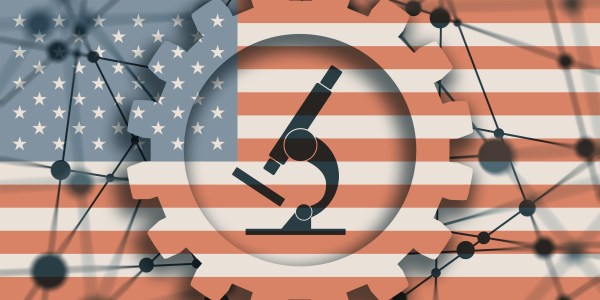One the best, and one of my favorite, scenes in Excalibur is when King Arthur has been restored to health after drinking from the Holy Grail, and as he rides to battle the land is restored to health as well, all to the stirring soundtrack of “O Fortuna.”
This captures something of the mood in MAGAworld, and the GOP generally, these days. (There’s still a difference between MAGA and the GOP, but during this honeymoon period the Venn diagram looks a little bit like two moons converging until one eclipses the other.)
New presidents are almost always surrounded by optimism from supporters on the cusp of their inauguration. Everyone is getting jobs and has big plans. Everything still seems possible. Reporters are writing fawning profiles of soon-t0-be White House insiders as “beat sweeteners” for the next four years. The subjects of these fawning profiles and the super-fans often even believe what they read.
But this honeymoon is special for Trump because he was one of the few presidents denied one the first time he was elected. MAGA people will tell you that was 100 percent because of “Russia, Russia, Russia” and there is definitely some truth to that. But Trump also ruined his own honeymoon with his weird inaugural address, by beclowning Sean Spicer with all that Biggest Crowd Ever nonsense, and by running a chaotic operation.
This time the operation is more disciplined, and Democrats are demoralized more than they are outraged. It still seems possible that nearly all of Trump’s promises could come to fruition—at least superficially—like so many boxes with a Schrödinger’s cat in each one. After the inauguration, each box gets opened and we see which cats are alive, and which are … just resting.
But this time is all different because, à la Arthur’s restoration of England, it looks to a lot of people like nature is healing. As presidents become avatars of the culture war, people increasingly think the health of the land is tied to the health—or success—of the president.
For instance, Republicans suddenly believe that inflation will fall to 0.1 percent next year while Democrats believe it will rise to 4 percent. Before the elections, the expectations were near reverse, with Democrats expecting low inflation and Republicans expecting high.
Still, the thing that makes this time seem different is the scope of the vibe shift.
Big corporations are downgrading or altogether dropping their DEI programs. Woke is out and bro-talk is in. Fatcats can hardly contain their jubilation. “I feel liberated,” a top banker told the Financial Times. “We can say ‘retard’ and ‘pussy’ without the fear of getting cancelled . . . it’s a new dawn.”
It’s amusing that this top banker, while basking in the warmth of this “new dawn” of freedom, didn’t give his name to the Financial Times as he celebrated the freedom to say “retard” and “pussy” without penalty. It’s almost as if there are reasons not to talk that way, even with Trump in the saddle. If you have all the f-you money in the world, a political and cultural climate going your way, and are eager to brag about the ability to speak freely but are still too scared to say the word “pussy” on the record, you just might be one.
I want to be clear. I am, for the most part, very glad to see these corporations move away from DEI policies. I am glad that Democrats are realizing that they went too far to the left and that all of the shibboleth-bullying and luxury beliefs stuff has led them astray. The sooner the Democrats become a healthy center-left party, the sooner the GOP will become a healthy center-right party. None of these are new or inconsistent positions for me.
So why do I feel so … remnant-y?
I don’t mean this as a plug for my podcast, which all handsome and intelligent people subscribe to on the platforms of their choice.
One thing I do mean by “remnant-y” is that we’re in this weird moment where criticizing Trump is seen as somewhat bad form because he hasn’t really done anything yet.
Before Nick Catoggio or Kevin Williamson punch the screen, let me clarify. He hasn’t done anything as a new president yet. There’s an expectation of a fresh start after all elections, but especially for Trump, because of that stolen honeymoon thing. Whatever you think about that argument, a lot of people believe it. I subscribe to this view somewhat myself. I am happy to wait and see before pouncing, Never-Trump-style.
Indeed, that was my position when he got elected the first time, and it’s my position this time too. I must admit, one reason I am happy to take this position is that I know I will be proven right—again. I expect to drop an I-told-you-so or an I-informed-you-thusly quite frequently over the next four years.
But you should wait for your moment.
This approach puts me on the outs with some of my anti-Trump friends who see no reason to even tap the brakes. My complete comfort in saying I expect to be proven right about Trump yet again pisses off the people who think I was wrong the last time and the people who think I was right the last time but—for Charlie Brown-adjacent reasons—convinced themselves that this time will be different. He’s gonna kick that football, just you watch. Basically, nobody likes my approach, except a tiny remnant of folks who get it.
But there’s another reason I feel so remnant-y. Let’s go back to the fatcat stuff.
Many are disgusted by the corporate shift rightward. From that excellent Financial Times piece:
“There are conservative pressures in this political climate, and folks are just anticipating a change in the administration and . . . aligning their strategies with these expected policy shifts,” said Trier Bryant, a former DEI executive at Goldman Sachs and Twitter.
Last week, social media group Meta exemplified all the developments at once. It dropped its content moderation policies, added longtime Trump friend and Ultimate Fighting Championship chief executive Dana White to its board, shifted its chief diversity officer to a new role, and dropped its goals to boost racial and gender diversity among its managers and suppliers.
And, then a bit further on:
Liberal politicians and investor activists are appalled. “Corporate caving to Trump is deeply distressing,” said Brad Lander, New York City comptroller and an advocate for sustainable investing. “We have seen too many examples through history. That, over time, is how democracy and fundamental rights are weakened.”
So, here’s the thing. I’m appalled by all of the zagging toward Trump by big businesses. But unlike this Brad Lander guy, I was appalled by all of the prior zigging as well.
Long before “woke” and “DEI” entered the mainstream political lexicon, I’ve been complaining about businesses tailoring their policies to win favor from Washington and about Washington trying to force ideological priorities on businesses. I started writing my first book to rail against precisely this sort of corporatism.
Lander is sort of right about the problem with corporations caving to political pressure. But he—and so, so, so, so many others—had no problem with corporations caving in his direction. When corporations, under intense political pressure, appointed ideological commissars to enforce DEI to pander to the political moment, it was bad. And when corporations dismantle all of that stuff to pander to the political moment, it’s also bad. I’m not saying that these corporations should keep bad policies in place as an act of political resistance. I’m saying that political obeisance is not something to be celebrated or congratulated. It’s all a symptom of the same problem.
In one of the great understatements, Axios reports that “donors [to Trump’s political coffers] seem to be giving on the assumption that there’s something in it for them.” You don’t say?
The smartish brevity continues:
The reasons appear to vary: ideological alignment with Trump; getting favorable legislation in the upcoming “reconciliation” bill that Trump and the GOP-led Congress are putting together, or avoiding public criticism from Trump that can drive down a company’s value.
The new Elon Musk-led Department of Government Efficiency (DOGE) has been cited by some as a new factor. It’s now a verb in the political lexicon, meaning something that’s on the chopping block.
“We don’t want to get DOGE’d,” one lobbyist told Axios.
DOGE is supposed to be some kind of exercise in swamp-draining efficiency. Best practices! Tech! Computers and lasers! But it looks just as likely that DOGE will be a swamp-enforcement mechanism.
I am appalled by all of it. And I am appalled by the people appalled by it. Because if their candidate won, they’d be celebrating—and so would all of these CEOs.
Nature isn’t healing if businesses still think their bottom line is decided by politicians instead of consumers or shareholders. Trump isn’t Arthur reviving the land, he’s just another ruler demanding fealty. And, in the vernacular of this new dawn (please don’t be distracted by my rolling eyes), that’s a retarded way to run an economy, and the multi-billionaire CEOs running to curry favor with one party after the other, are pussies for not saying so.










Please note that we at The Dispatch hold ourselves, our work, and our commenters to a higher standard than other places on the internet. We welcome comments that foster genuine debate or discussion—including comments critical of us or our work—but responses that include ad hominem attacks on fellow Dispatch members or are intended to stoke fear and anger may be moderated.
With your membership, you only have the ability to comment on The Morning Dispatch articles. Consider upgrading to join the conversation everywhere.